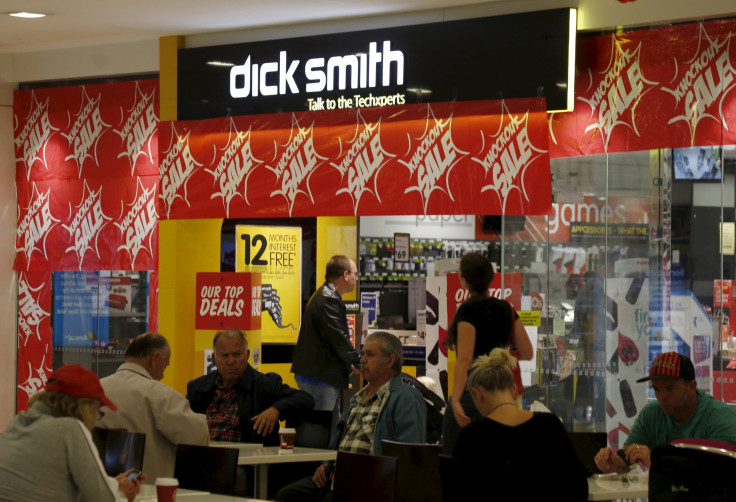Australian Electronics Chain Dick Smith Runs Out Of Cash, Looks For Buyers

Dick Smith Holdings Ltd., a popular electronics retailer in Australia and New Zealand, said Tuesday it did not have enough money to sustain operations until next month. The company, which went public just two years back, entered into administration — a rescue mechanism for insolvent companies where an administrator chosen by the creditors runs the company while looking for buyers.
Tuesday’s move comes after months of failed product promotions, missed sales targets and disappointing December sales at the company. In November, the Sydney-based company abandoned its profit guidance and slashed the value of inventories by 20 percent — a $60 million write-off.
“The Directors have been unsuccessful in obtaining the necessary support of its Banking Syndicate to see it through this period,” the company said in a statement, adding that McGrath Nicol, a business advisory firm, has been appointed to act as the voluntary administrator. The company also suspended trading in its shares at the Australian Stock Exchange in order to buy time to shore up its balance sheet.
"The announcement is very negative. This could be the end of the road for Dick Smith," Forager Funds chief investment officer Steve Johnson told the Sydney Morning Herald.
“It’s definitely the end of the line,” Scott Schuberg, chief executive officer of Rivkin Securities Pty in Sydney, told Bloomberg. “Dick Smith sold commodities just like everyone else, but it did a really poor job of positioning its brand. In hindsight, the first big writedown is not usually the last.”
The electronics retailer lost 83 percent of its share price in 2015. In comparison, rival electronics chain JB Hi-Fi Ltd. gained 24 percent in the same period.
Major lenders of the company appointed corporate restructuring specialist Ferrier Hodgson as a receiver to run the company in a way that will most effectively pay back creditors.
In a statement Tuesday, Ferrier Hodgson said it was too early to clearly identify the main reasons for the company’s current financial position and its decline, "other than saying the business had become cash constrained in recent times."
© Copyright IBTimes 2024. All rights reserved.











